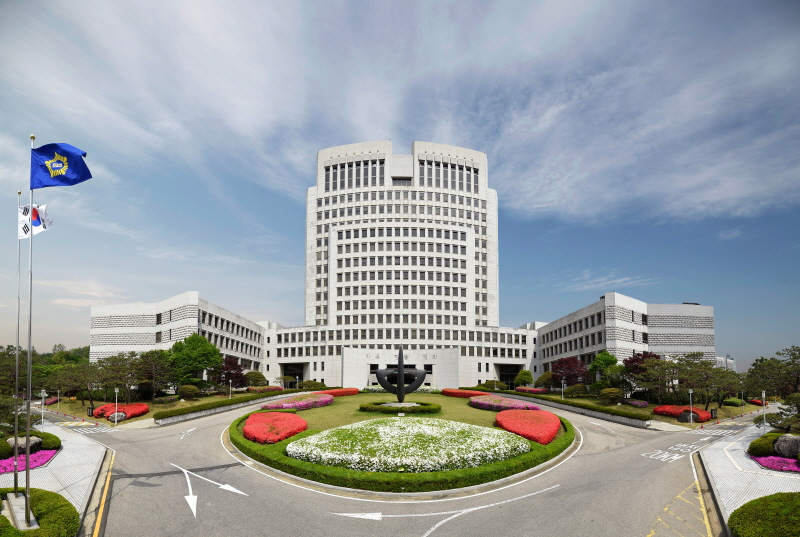 |
The Supreme Court building in Seoul. (Supreme Court) |
When individual workers who participate in illegal industrial action are held responsible for financial damages, the degree of responsibility should be considered individually according to the degree of contribution in illegal activities, the Supreme Court ruled Thursday.
The Supreme Court on Thursday returned a lower court ruling that sided with South Korean carmaker Hyundai Motor in seeking compensation from unionized workers for inflicting losses during their strike in 2010.
Sending the case back to the Busan High Court, the top court said the liability of union members should be measured by the extent of their individual involvement in the union's actions, not equally.
From Nov. 15 to Dec. 9, 2010, the nonregular workers' union under the Korean Metal Workers' Union occupied the first and second production lines of the Ulsan plant and refused to work, halting production for 278 hours.
Hyundai Motor demanded 27.1 billion won ($21 million) in damages from 29 unionized workers who participated in the factory occupation. Hyundai dropped its claim against 25 of them after they agreed not to sue the company to become permanent workers. The lower court awarded damages of 2 billion won against the remaining four, ruling that the workers should take equal responsibility.
The Supreme Court, however, reasoned that individual members, who are bound to comply with the decision of a majority vote, have diminished responsibility, as opposed to the labor union itself. The court also explained that asking union members to judge the legitimacy of their actions each time in an urgent strike or protest situation can weaken the workers' right to collective action.
"Considering the liability of labor unions and individual members as equal might undermine the workers’ right to unite, which is guaranteed by the Constitution," the Supreme Court ruling said.
The ruling by the top court appears to be in line with the controversial labor-friendly Yellow Envelope bill.
The bill, currently pending in the National Assembly, is aimed at easing individual workers' burden for compensating for damages incurred during union activities. The proposed law contains the clause, "If the court recognizes liability for damages, the scope of responsibility should be individually determined according to each participant’s contribution to the strike actions."
Meanwhile, the Supreme Court also ruled partially in favor of workers in a separate case involving Hyundai Motor on the same day.
Hyundai Motor demanded 45.3 million won in compensation from five union members who participated in a strike on July 12, 2013, saying production was suspended for 63 minutes due to the occupation of another Ulsan plant by the nonregular workers' branch. The defendants claimed that production was recovered through overtime or holiday work, which did not interfere with scheduled sales.
"If additional production has made up for all or part of the production shortage caused by strike, it is difficult to admit that damage had been made due to unionized workers’ actions," the Supreme Court said, sending the case back to the lower court.







